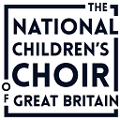About us
Who we are
The National Children’s Choir of Great Britain was founded in 1998, to bring together talented young singers from throughout the United Kingdom and give them the opportunity to work together and enjoy making music under the guidance of inspiring teachers.
The choir has grown from its original membership of 38, who sang in the Millennium Youth Prom in the Albert Hall as their first concert, to more than 250 members of the Junior and Senior Choirs. Young singers are able to join from ages 9 – 19, and each choir member is encouraged to develop their ability within a supportive environment.
The choir meets twice a year for residential courses, which give the singers the opportunity to work and live with their peers and form enduring friendships.
Our culture and values
NCCGB offers a holistic experience where equal importance is placed on excellence in music and strong pastoral care. We work hard to ensure that ours is a happy, supportive and caring community for children and young people who love to sing, and for the staff who work for us. We provide a non-pressurised space, where children and young people can be free to be themselves with no judgement.
We provide opportunities above and beyond music making. Our choristers are highly talented musicians. The NCCGB experience helps them to find their voice socially as well as musically. We watch them grow in independence and self-confidence, whilst forging friendships with like-minded children and young people.
Equality, diversity and inclusion policy
The National Children’s Choir of Great Britain is committed to providing, for its members and staff, an environment in which they can work and learn free from all forms of unlawful discrimination. The choir is committed to taking positive steps to ensure that:
· All people are treated with dignity and respect, valuing the diversity of all.
· Equality of opportunity and diversity is promoted.
We actively encourage positive attitudes towards choir members and staff and expect everyone to treat others with dignity and respect.
We expect that all staff will be role models for equal opportunities and be able to identify and challenge prejudice and stereotyping.

